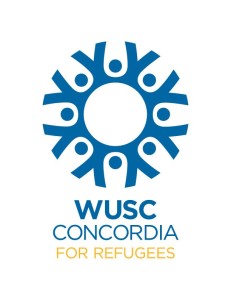If the World University Service Canada’s (WUSC) proposal makes its way through the Concordia Student Union (CSU), just 50 cents a semester from your pocket is all it will take to bring a new type of student to Concordia.

What WUSC — an organization dedicated to worldwide youth empowerment — seeks to do is implement its tried-and-true Student Refugee Program and see that one lucky individual between the ages of 17 and 25 and currently residing in a refugee camp, be brought over to Montreal, be given permanent residency, and attend the university on a full one-year scholarship.
The initiative, which surpassed the required 750 student signatures during a campaign run in the fall, will see its proposal voted on by a referendum come March.
“This program really gives an opportunity to an individual to gain citizenship and fulfill their potential through education,” said James Arruda, a long-time helper at the all-volunteer organization.
Arruda originally joined in CEGEP to impress a girl, but ended up “impressing himself.” As he explained, it wasn’t a “long story, but a luck story.”
“It was something I should have started long ago, and I really found myself.”
Arruda adds that the organization gave him an outlet for social activism to help others and to fight against closed or xenophobic mindsets.
“I feel that as a privileged individual in a very privileged society you can give that opportunity to somebody [else].”
A dollar might not seem like a lot, but once Concordia’s 30,000 plus student body is pooled together, it’s enough to provide for a budget which would include accommodation in student housing, tuition coverage, a repayment of their travel expenses, and spending money. In addition the budget would also cover a laptop, which WUSC believes is critical to allowing newcomers to fully integrate in an increasingly wired society and school curriculum.
“This isn’t charity. To me, charity is a very hierarchical system where you give them money. This resettlement program is really for them to regain their legal posture and to fulfill their potential,” said Arruda, adding that the organization doesn’t simply bring people over, but befriends them.
“If we kept it professional, we would regard them as a resource, a project, a management decision. We have to look at them like human beings, [as] friends. You yourself can never explain [what it’s like for them]; you can only listen and gain the most out of the experience.”
Because of the instability of trouble zones and the precarious nature of sponsorship contracts, WUSC mainly operates in more stable areas like the refugee camps of Kenya, Malawi, and Thailand, and it is here that applicants are found.
For an individual to apply, superior academic performance is naturally the first step to being noticed. In addition, fluency in the language of the institution is also required as well as a meeting of all program requirements and standards. Applicants go through interviews, and if chosen, may be asked to volunteer in some capacity at their camp while their paperwork is filled and precautions such as health tests are administered.
Although as permanent residents they cannot vote or leave the country without a visa, individuals sponsored by the program would have access to a social security number (allowing them to work), access to health care, and most importantly, the potential for a citizenship and a better and safer life.
Arruda says there are many obstacles to overcome once they do make it here. The novel and trying climate, new faces, and a different way of doing things can contribute to feelings of isolation, culture shock, and homesickness that makes juggling responsibilities tough. In those cases, WUSC is always ready to help.
“We never recommend a student to find a job their first year. We usually tell them that it’s better if they concentrate on their studies and try to get settled in. A lot of them face post-traumatic stress from being placed on a different continent with different people. Anything can happen.”
WUSC offers resources for newcomers to create ties to the new and get reacquainted with the old. Arruda says in most cases the students quickly settle in with the help of everything from clubs and groups, to religious organizations and the near-certain presence of their expat community in the city.
“We want to bring a stronger presence to Concordia and possibly a campus-changing opportunity,” he said, highlighting the potential of Quebec, which unlike other provinces does not have a quota when it comes to these sorts of things.
Ultimately Arruda hopes the coming of WUSC to campus will inspire students to help make a difference.
“I’ve always done this program so I can provide for somebody else to be here. I never thought [about] how it could help me, because I’m already helped.”
Yet, he quickly adds there is something to be gained from giving your time to create such a meaningful chance in a stranger’s life.
“Just like that you can have a new friend, get a new perspective on life. We’re there to also learn from them. We have to get the word out, the questions answered. We have to make it look like a fun program.”
If WUSC Concordia interests you, visit their Facebook group at www.facebook.com/WUSCConcordia.




